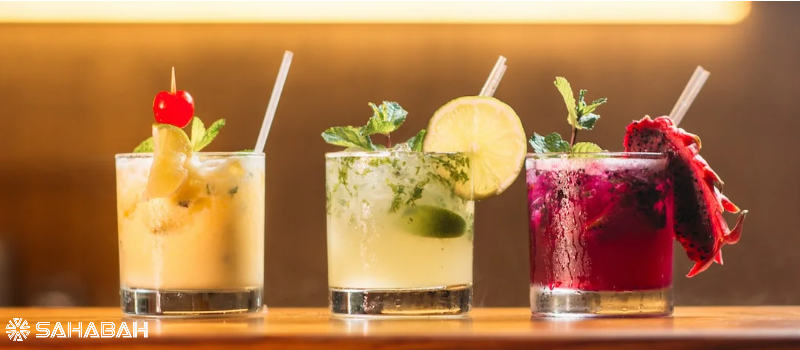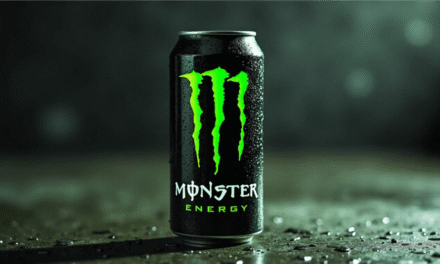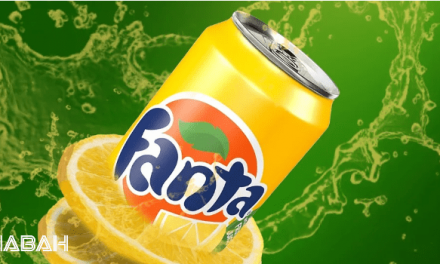The mojito is a beloved cocktail that has won over drinkers with its refreshing mix of lime, mint and just the right amount of sweetness. This iconic Cuban drink traces its origins back to 16th century sailor Sir Francis Drake who concocted an early ancestor known as El Draque using aguardiente, lime, sugar and mint to ward off scurvy and seasickness.
Over the centuries, rum replaced aguardiente as the base spirit while soda water was added to give it signature effervescence. The modern mojito as we know gained widespread fame in the 1940s and 50s through Havana’s La Bodeguita del Medio bar where famous regulars like Ernest Hemingway popularized it internationally.
Today, a chilled mojito is the epitome of summer served in bars and backyards, at baseball games or beachside – mint leaves lightly bruising under a muddler releasing bright aromas to mix with sweet-tart fresh lime juice, potent white rum and bubbly soda for a collision that awakens the senses.
However, the mojito’s iconic status has raised questions around its ingredients for devoted followers of certain faiths. Can Muslims drink this globally beloved cocktail with its temptation of rum while upholding halal dietary guidelines of Islamic law?
This extensive guide takes a detailed look analyzing the ingredients, alcohol content and preparation methods of mojitos to provide a definitive answer on is mojito halal or haram in Islam. And bonus – we share easy recipes to make perfect virgin mojitos so anyone can craft this legendary refreshment free of alcohol yet full of flavor!
The Origins and Global Rise of Mojitos to Fame
While mojitos feel intrinsically Cuban today, its genesis traces back to 16th century British naval hero Sir Francis Drake who regularly voyaged between Europe and the Americas.
To avoid sickness onboard, his medic formulated an early minty, citrusy concoction using primitive alcohol aguardiente, lime, sugar and mint. It was called El Draque in his namesake providing relief from nausea and scurvy for long ocean journeys in tropical climate.
Over centuries as Cuba’s rum production flourished, sailors and pirates refined the drink substituting rum for aguardiente while adding soda water to amplify refreshment. This created the foundations of the modern mojito we’re familiar with.
By the late 19th century, El Draque evolved into the quintessentially Cuban mojito cocktail consumed regularly in Havana. It gained international recognition in the 1940s and 50s through expat celebrities like Ernest Hemingway and the Havana nightlife hotspot La Bodeguita del Medio bar.
As Cuba opened to American tourism in the 50s, legions of visitors encountered mojitos in bars and restaurants taking a liking for its crisp herbal taste. They brought the recipes back where it spread like wildfire at cocktail parties across the United States through the next decades.
From America, mojitos crisscrossed Europe and beyond rising to globally iconic status today as the epitome of cool refreshment. Though originally from Cuba, it’s now easily ranked among the world’s most popular cocktails ordered everywhere from Mexico to Moscow.
But its surging fame has raised questions around enjoyed by devoted followers of certain faiths. Can Muslims drink this globally popular cocktail with its alcohol content while upholding halal dietary rules?
Understanding Halal Food Regulations in Islam
Halal is an Arabic word meaning lawful or permissible. In context of food and drinks, halal refers to guidelines on what Muslims can consume under Islamic law derived from the Holy Quran.
The opposite of halal is haram: anything considered prohibited or unlawful according to Muslim beliefs. Haram foods and drinks are intensely avoided by devout followers of Islam.
Some key halal diet regulations include:
- No pork or pork by-products: Pig meat and pork derived ingredients are strictly forbidden.
- No alcohol or other intoxicants: Any liquor with alcoholic content is totally prohibited.
- Meat must undergo ritual slaughter: All lawful meat must be slaughtered according to zabihah halal guidelines.
- No filth or contamination: Cannot come in contact with anything inherently considered impure such as blood or carrion.
So in essence, halal foods must be free from any components that Muslims have been religiously instructed to avoid. When it comes to drinks, alcohol and other intoxicating substances are categorically labeled haram (forbidden).
Now, let’s explore what exactly gives the globally renowned mojito its signature flavor and check if it holds up against these halal requirements.
The Refreshing Anatomy of a Mojito Cocktail
A mojito is made by muddling lime wedges and mint leaves with sugar, adding white rum and mixing in soda water. This is finished with a customary garnish of lime wheel and fresh mint.
It strikes the perfect balance of sweet yet tart, amplified by the potent herbal aroma. The fizzy effervescence keeps it ultra-refreshing.
Here’s a quick rundown of key ingredients that make this timeless cocktail:
- Mint – Fresh leaves provide refreshing flavor and aroma
- Lime Juice – Sour juice extracted from fresh lime wedges
- Sugar – Granulated white sugar or sweet syrup for sweetening
- White rum – Adds signature punch (main alcohol component)
- Soda water – Carbonated water gives it bubbles
- Garnishes – Lime wheel and mint leaves
So besides fresh mint, lime and sugar which pose no problems – that rum component is the one that raises eyebrows. Let’s explore further.
Alcohol Content of Mojito Cocktails
The key alcoholic ingredient giving mojitos their kick is the white rum floated on top. Rum contains ethanol distilled from byproducts of sugarcane including molasses or sugarcane juice directly.
Most standard rum used for mixing cocktails ranges between 40-50% alcohol concentration. Some higher quality aged variants like Bacardi Carta Blanca or Havana Club Añejo have slightly lower ABVs closer to 40%.
This means a standard mojito cocktail made with 2-3 oz white rum contains quite some alcohol. Even factoring dilution from soda water and fruits juices, the total volume ends up substantial for Islamic laws.
In case you’re wondering, according to FDA guidelines, a standard drink is any beverage containing 0.6 ounces or 14 grams of pure alcohol. Ethanol has a density of 0.789 g/mL.
So 14 g / 0.789 g/mL = 17.74 mL. Which means 17.74 mL or 0.6 fluid ounces of ethanol constitutes one alcoholic standard drink. This volume in higher proof spirits equals around 1.5 ounces typically served.
Now let’s calculate the alcoholic strength in a mojito.
- If 2 oz 40% ABV white rum is used in a mojito:
- 2 * 0.4 = 0.8 oz ethanol → around 1.5 standard drinks
- If 3 oz rum is used, that concentration of alcohol equals 2 standard drinks
Either way, a full mojito cocktail made with rum contains over 1 alcoholic drink worth of pure ethanol concentration.
So while micro traces of alcohol from fermented lime juice may be pardonable to some schools of interpretations, clearly a mojito crossed the threshold for permissibility under halal laws.
Why Mojitos are Considered Haram in Islam
It is abundantly clear that mojitos are made with a substantial volume of rum which contains high levels of alcohol deemed haram prohibited. Most Islamic scholars would forbid mojitos based on the following prohibitions:
👎 Intoxicants are forbidden: Regardless of source, any intoxicating drink is labelled haram under Sharia law. This includes all alcoholic beverages like beer, wine or liquor containing ethanol above negligible amounts.
👎Alcohol is an abomination of satan’s handiwork: Multiple verses in the Holy Quran have compared alcohol to Satan’s dirty work designed to sow hatred and enmity among people while preventing remembrance of God.
👎 Impact on mind and body: Alcohol is considered an addictive intoxicant that damages health and mental faculties. Even in moderation, it impacts judgement and self-control leading to social issues.
For these reasons, alcohol consumption is strictly avoided by devout Muslims worldwide. So mojitos containing a full shot (or more) of rum per serving would universally be deemed forbidden.
Having conclusively proven that need for abstinence from alcohol, are there alternatives to enjoy this summery drink in a halal way? Keep reading to find out!
Crafting Refreshing Virgin Mojitos Without Alcohol
Here comes some great news if you’ve developed a liking for those quint essential mojito flavors of lime, mint and sweetness minus the buzz!
You can create flavourful virgin mojitos by simply replacing the rum with fruit juices, syrups or non-alcoholic liquors while retaining the iconic taste profile free of alcohol.
These allow casual drinkers, teetotalers and Muslims alike to enjoy the timeless taste of mojitos without breaking any taboos. We call them mojito mocktails!
Let’s explore some easy ingredient swaps to make perfect non-alcoholic mojitos full of summer flavor:
Use Fruity Mixers
👍 Apple juice – replaces rum beautifully while adding fruity notes
👍 White grape juice – imparts tropical flavors
👍 Pineapple juice – creates a Hawaiian twist
Flavored Sodas & Syrups
👍 Mint syrup – enhances fresh mintiness
👍 Rose syrup – contributes exotic floral edge
👍 Lemongrass syrup – gives it Asian zing
👍 Citrus sodas – boost citrusy goodness
Spiced Liquors
👍 Non-alcoholic gin – replicated complex botanicals
👍 Vanilla extract – enhances richness
Another pro mixology tip is using combinations of these to produce bespoke complexity taking your mojitos to the next level sans alcohol!
Mint sprigs, lime wedges and sugar balancing sour, sweet, bitterness remains integral so first focus on nailing this foundation.
Let’s check out an inspired virgin mojito recipe to get your creative juices flowing!
Recipe: Rose Lemonade Virgin Mojito
This sensational pink iteration combines floral rose notes with tart lemon for an Instagram-ready alcohol-free enjoyment.
Ingredients
- 10-15 mint leaves
- 1 lemon cut into wedges
- 2 tbsp sugar (or equivalent sweet syrup)
- 1 cup lemonade
- 1⁄2 cup rose syrup
- 1 cup soda water
- Lemon slices, mint sprig for garnish
Method
- In a tall glass, gently muddle the mint leaves with lemon wedges and sugar using a muddler or wooden spoon until mint releases aroma and the sugar dissolves slightly
- Add the lemonade, rose syrup followed by soda water and stir everything together with a bar spoon
- Fill glass with ice and mix again to combine
- Garnish your rose virgin mojito with lemon wheel and fresh mint
¡Salud y halal! 🍹
So simple yet so flavorful and refreshing minus the alcohol! The rose adds pleasant subtly floral sweetness playing off the tart lemonade for balanced character without overwhelming the iconic mint and citrus.
Feel free to try more combinations of juices, syrups, herbs, spices or garnishes until you find your perfect blend. The possibilities are endless to craft bespoke mixes putting your unique spin.
Halal-friendly alternatives means no reason for anyone to miss out on enjoying this globally iconic summer thirst-quencher!
Final Verdict: Are Mojitos Halal?
In conclusion, the classic mojito containing white rum is haram (impermissible) in Islam due to high alcohol content which Muslims must refrain from under Sharia law.
However, by subbing the rum for non-alcoholic juices, sodas, syrups or liquor alternatives – you can produce refreshing virgin mojitos that retain the core flavor essence minus the buzz.
These innovative mojito mocktails completely avoid alcohol allowing enjoyment by teetotalers and following Muslim halal diet guidelines requiring sobriety under Islamic jurisprudence.
So don’t despair if you crave those flavors of cool mint and lime. We’ve unlocked the secret to crafting the perfect non-alcoholic mojito recipes for compliance!
Frequently Asked Questions: Is Mojito Halal?
Yes, a virgin mojito, mojito mocktail, or any non-alcoholic alternative is considered halal as it doesn’t contain any alcohol.
What is the difference between a regular mojito and a virgin mojito drink?
The regular mojito contains alcohol, while the virgin mojito drink is a non-alcoholic version made with ingredients like sparkling water, sugar syrup, lime, and mint.
Can a mojito mocktail be considered a halal drink?
Yes, a mojito mocktail is halal as it is a non-alcoholic alternative to the traditional mojito and doesn’t contain any alcohol.
What are the key ingredients in a mojito mocktail?
The key ingredients in a mojito mocktail include lime juice, mint leaves, sugar syrup, and sparkling water, all without the addition of alcohol.
How can I make a virgin mojito at home?
To make a virgin mojito at home, you can use ingredients like fresh mint leaves, lime juice, sugar syrup, and sparkling water to create a delightful non-alcoholic beverage.
Does a mojito mocktail contain alcohol?
No, a mojito mocktail is completely alcohol-free and offers a non-alcoholic alternative to the traditional mojito.
What makes a virgin mojito drink a popular non-alcoholic option?
The delicious mocktail made with lime and mint, without the alcohol, is a refreshing choice for those looking for a non-alcoholic drink with a hint of citrus and mint flavors.
Can I enjoy a mojito mocktail as a non-alcoholic alternative to a regular mojito?
Yes, a mojito mocktail can be a perfect non-alcoholic alternative, offering a tantalizing blend of citrus and mint flavors without the inclusion of alcohol.
Are there any specific ingredients in a mojito mocktail that replicate the traditional mojito’s taste without the alcohol?
Ingredients like fresh mint leaves, lime juice, sugar syrup, and sparkling water are used to create a mojito mocktail that delivers the delightful taste without any alcohol content.
Can the virgin mojito be considered as halal drink, and how does it differ from a traditional mojito?
The virgin mojito is indeed considered a halal drink, and the key difference lies in the absence of alcohol. Its refreshing taste comes from fresh mint, lime, and other non-alcoholic ingredients, making it a delightful and halal option for everyone.




